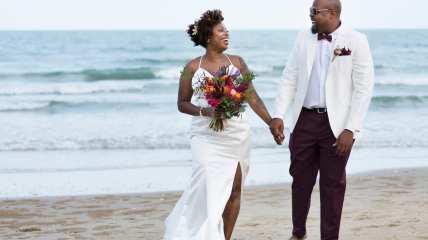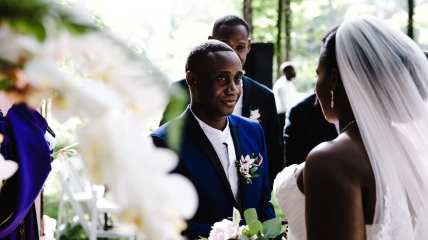The reality of being a Black bridal designer
Chicago-based bridal designer Laurie Underwood of Laury Bride opens up to theGrio about life as a Black designer in the wedding industry.
Good news for brides hoping to wear Black — meaning a Black designer — for their nuptials: the number of Black bridal designers in the industry is slowly but surely growing along with the demand. That means there’s a Black wedding dress designer for every style of Black bride: Andrea Pitter of Pantora Bridal caters to ultra-glamorous brides; Gbemi Okunlola of Alonuko Bridal’s regal gowns adorn celebrities; the late Amsale Aberra created a legacy of upscale elegance with her namesake label Amsale; Keisha Ransome of The Lotus Bloom Co. sells unique pieces for less than $1,000 on Etsy — and everything in between.
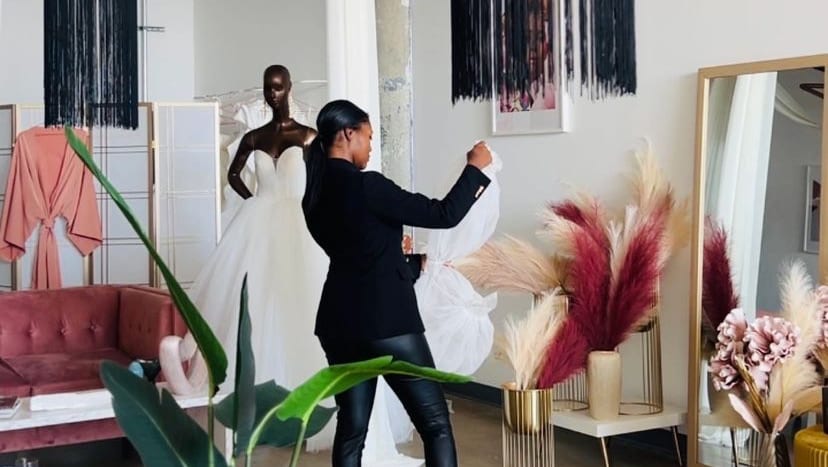
As the number of Black-led bridalwear brands in the industry grows, theGrio wanted to know what it’s really like navigating the “wedding industrial complex.” Among many aspects, it seems to require embracing your uniqueness, at least in the case of Chicago-based Laurie Underwood of Laury Bride, who went from competing on “Project Runway” to launching her own brand in 2019.
Underwood sat down with theGrio to discuss how she harnessed the high visibility of reality TV to launch her brand, and what it’s like being a wedding dress designer. She also gave insight into how Black bridal designers fit into the wedding industry at large.
Underwood found her way into the bridal industry in 2017, after her custom designs landed her on season 14 of Bravo’s “Project Runway.” After being eliminated from the competition but contractually obligated to stay sequestered with the cast, she used the time to ponder her next move. Her thoughts quickly turned to bridal, and once back home in Chicago, she began dabbling in designing wedding gowns. However, Underwood didn’t officially answer the call from the industry until 2019, when bestselling author and influencer Luvvie Ajayi appeared on the cover of MunaLuchi Bridal magazine dressed in one of her gowns.
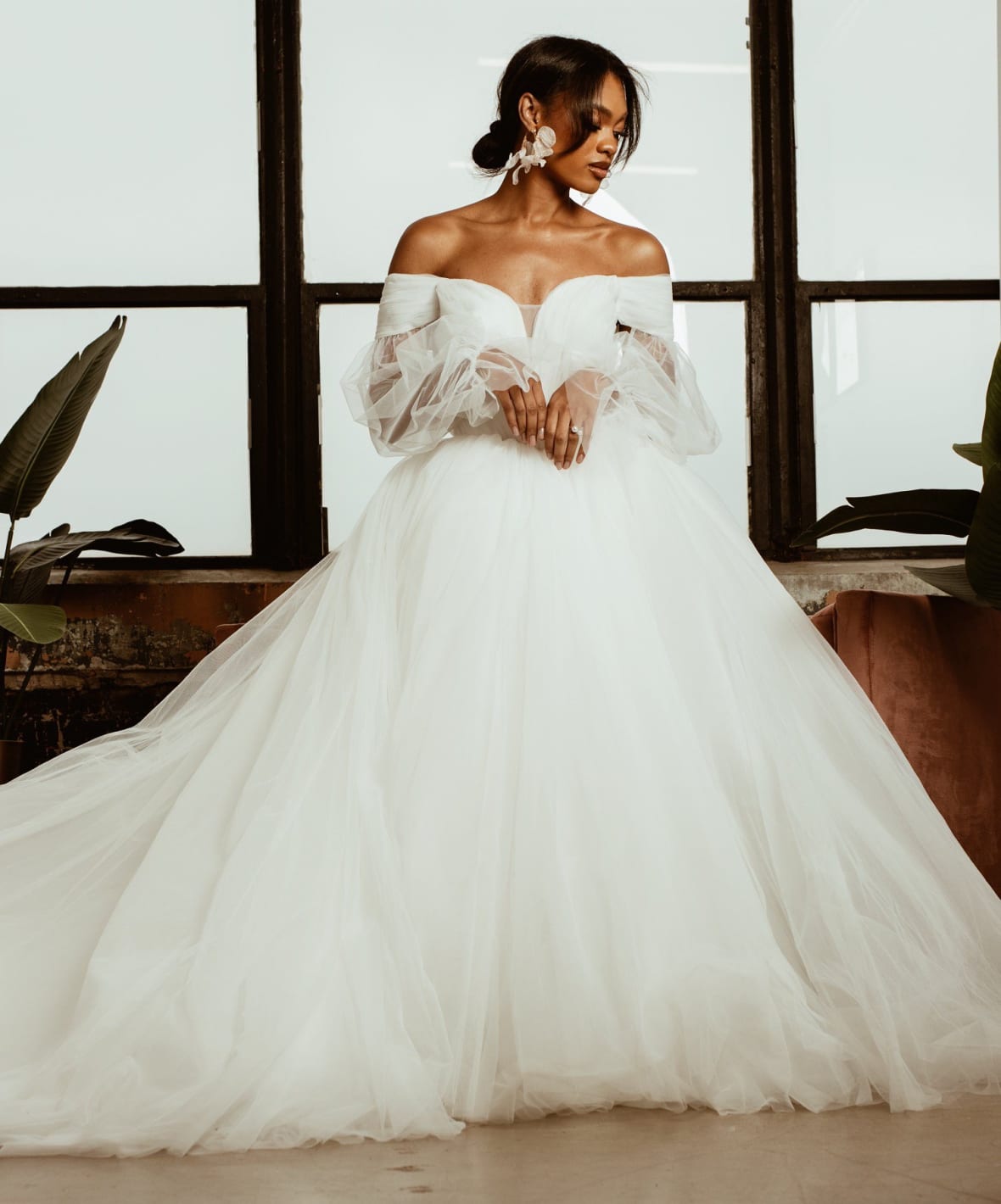
Seeing her designs in a major bridal magazine for brides of color was the reinforcement Underwood needed. “Okay, I can do this; this is what I want to do,” she recalls thinking. “That’s my step into this world, so I can either take it or leave it.”
She seized the moment and has since grown her business, servicing over 30 brides annually (for perspective, consider there are only 52 weeks in a year, and most brides get married between May and August). Laury Bride offers luxury bespoke gowns in addition to a ready-to-wear bridal line, and there’s more on the horizon as Underwood is exploring integrating AI into her design process and expanding her business to home goods.
While Underwood enjoys her career as an independent designer, she admits it can be “a little lonely.” That feeling is magnified at major wedding industry events when out of hundreds, she can count the other Black vendors on one hand — though she’s quick to clarify it’s not for lack of Black bridal vendors.
“For me, all I have is myself and my bride. Yes, I’m attached to the industry by way of MunaLuchi Bridal,” she explained. “But as far as [the larger] industry, it’s not fully open yet to Black bridalwear designers.”
Although being one of few has its advantages, Underwood said at the end of the day, it gives her the opportunity to be an original.
“It allows me to provide a unique experience for Black brides, and I love it,” she said. “It allows me to kind of just make my own way, not having to step into this cookie-cutter way of how you are to be a bridal designer or how you are to run your shop.”
The Laury Bride experience includes virtual consultations, design meetings, and luxury fittings on-site in a private bridal suite. Underwood even provides car service and locates hotel accommodations for out-of-town brides (who comprise 90% of her business) if necessary. She also offers a bridal concierge service, meaning she will service a bride in person on the big day.
“I try to make the experience as unique and luxurious as possible,” she said. “This is hopefully their one and only time to do this. I want to make sure Laury Bride is a great experience and contribution to their journey.”
Underwood added that providing this luxury experience is a personal imperative because she knows what Black brides have often had to go through on their journey to find their wedding dress by the time they’ve made it to her.
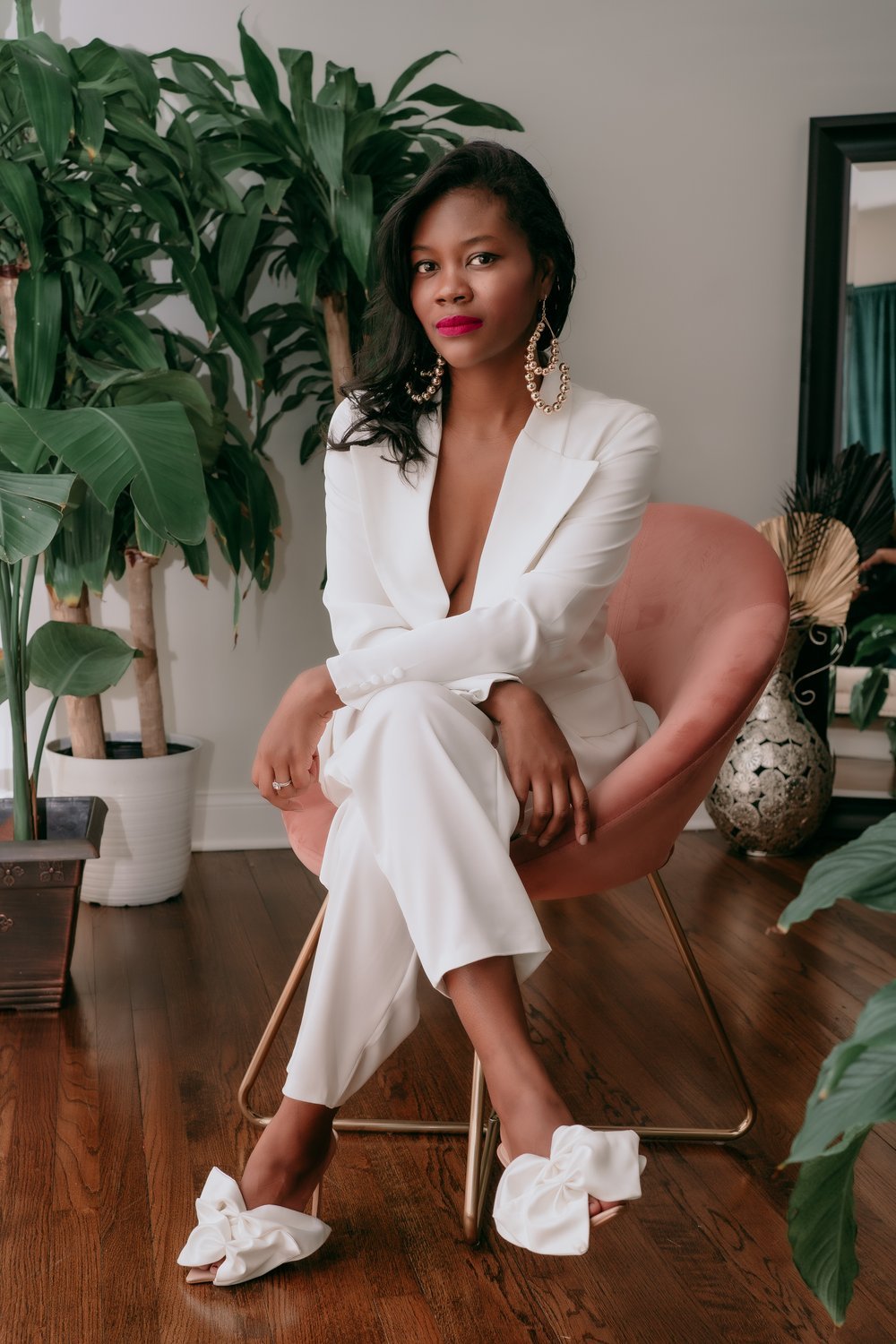
Specifically, Black brides may struggle to find silhouettes and styles that work for them off the rack, as curvier frames and deeper skin tones are often overlooked. Or they may have had a less-than-ideal shopping experience. As a result, working with a Black designer on a bespoke gown is becoming an increasingly popular option for Black brides dissatisfied with ready-to-wear options.
Underwood has many happy anecdotes and lasting memories from her work in bridal thus far, but unfortunately, it’s not always a glamorous experience. She admitted that sometimes she runs into brides who carry their own biases about Black businesses or are unaccustomed to working with a Black business.
“[Black wedding dress designers] are asked for certain things that you wouldn’t ask a non-Black business for. We are held to a higher standard. They expect nothing but the best, and we give them nothing but the best, but when there are mistakes or certain failures, they won’t take it — but they would from non-Black businesses,” she explained.
Then there are clients who lack an understanding of what it means to be a designer versus a seamstress. There’s an etiquette to employing a designer that Underwood wishes more brides interested in bespoke gowns were aware of. For instance, many bespoke clients expect wedding dress designers to be able to make a replica of another designer’s work. However, while a seamstress will readily work from a design already created, a designer’s craft is to create an original based on their own aesthetic.
“I’m always getting those requests, and I turn them down. Because I can’t be a designer, I can’t live in my truth copying something. That’s not Laury Bride. That’s not what I do,” Underwood said.
She added that among her network of designers, this is the dominant challenge they all share.
“[Some clients] aren’t trusting of our aesthetic; they aren’t trusting of our perspective in bridal. Once brides can trust our design perspective, then Black bridal designers can be successful in this industry because that means that we’re making our mark when it comes to design and style,” she said.
Underwood explained that when she runs into distrust, she’s quick to turn the client down. She’s also not opposed to recommending another designer when her style doesn’t align with the client’s desires. She said she doesn’t look at it as helping “the competition” because, from her perspective, with brides getting married every weekend and the sheer diversity of brides, there is no such thing as “competition” in the bridal industry.
“There are many designers and Black designers that I look up to; I absolutely love their work. But we’re all in our own lane. We all offer something different. Because there are different brides out there,” said Underwood. “You have your glam bride; you have your bohemian bride; you have your minimal bride; you have your modern bride. One bridal designer can’t connect with all of those different brides. I like to focus on connecting with who my bride is versus, you know, everybody.”
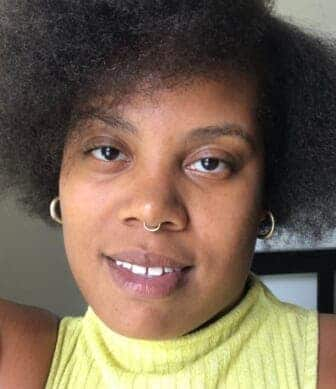
Kay Wicker is a lifestyle writer for theGrio covering health, wellness, travel, beauty, fashion, and the myriad ways Black people live and enjoy their lives. She has previously created content for magazines, newspapers, and digital brands.
TheGrio is FREE on your TV via Apple TV, Amazon Fire, Roku, and Android TV. TheGrio’s Black Podcast Network is free too. Download theGrio mobile apps today! Listen to ‘Writing Black’ with Maiysha Kai.
